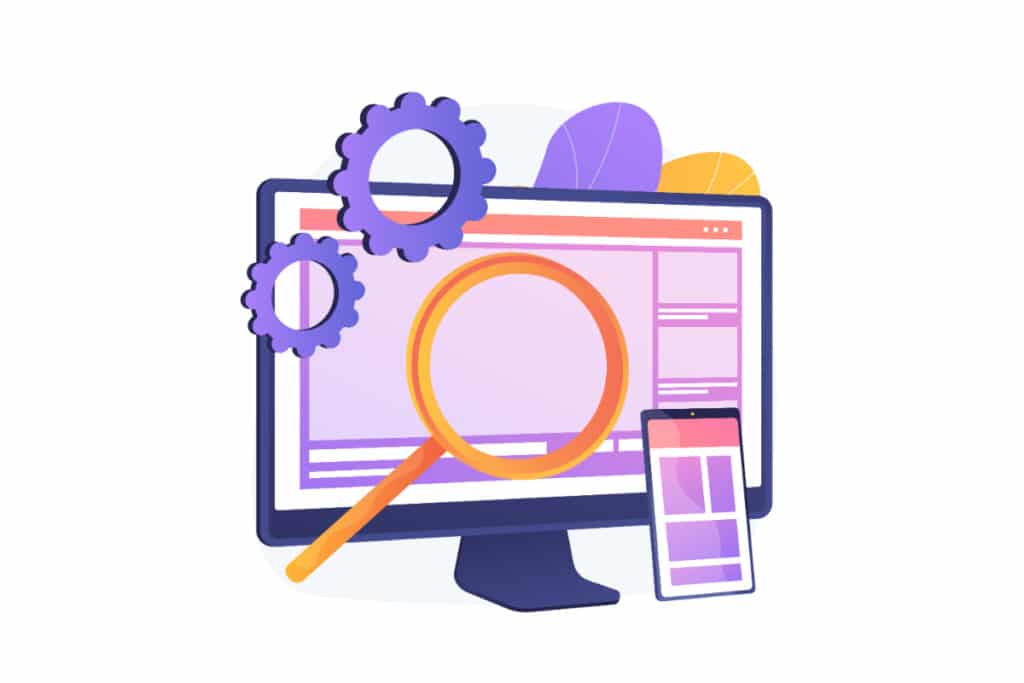A CMS (content management system) consists of a specific software. Its primary functions are the design and dynamic updating of a website. Version control, content publishing, formatting, indexing and searching the content catalogue are also part of its repertoire of functions. The development of CMS has resulted in two market leaders: Joomla and WordPress in 2022. This CMS comparison will guide you to the tool that best suits your needs for your digital project. So, Joomla or Wordpress?
The target audience: expert or amateur
Given their divergent principles, Joomla is aimed at experts, while WordPress is aimed at amateurs.
Joomla
As a reminder, a CMS refers to an application used for the creation and management of digital content (videos, photos, social applications, galleries, texts, widgets, etc.). Wordpress, Joomla and Drupal are the undisputed masters of digital content management of our time. Between these three, Joomla remains the only application with the characteristics of a real CMS.
The instrument took off in the 2000s before gradually giving up its throne to Wordpress. Even so, it has retained a privileged position in the market.
The Joomla interface reveals a complex system, making it inaccessible to beginners. In fact, it is intended for a handful of experts: developers, designers and experienced integrators. The platform designs large-scale digital projects that call for dynamism and creativity.
Wordpress
Wordpress was, in its early days, a simplistic blog manager. Today, it is one of the most popular CMS. Its diversified extensions have something to do with it. Portfolio, digital shop, digital gallery, company website, all designs are possible.
The tool has two sub-products: WordPress.com and WordPress.org. The first is a self-hosted version. It creates and publishes your content directly. Owned by the American company Automattic Inc, the second requires installation on a hosting server.
Its childlike simplicity makes WordPress accessible to the general public. Many small and medium-sized businesses, startups, and even home users are comfortable using the software's interface.
The ease of use of the tool
Because of its complex nature, Joomla is more difficult to tame, unlike Wordpress.
Joomla
The time it takes to get to grips with Joomla is several months, depending on the expertise of the user. A seasoned programmer or developer feels able to grasp its quintessence in just a few days. However, an amateur takes several months to master its interface.
The use of the Joomla system follows a precise hierarchy. The purchase of a domain name and the choice of web hosting start the project. Then comes the installation, a step made easy thanks to its self-installer. You can also rely on the assisted installers of the hosting companies. Finally, the creation of categories precedes the creation of content.
Wordpress
Taking your bearings on the administration panel of Wordpress seems easy. Despite the many options, it is easy to understand. A few days of use are enough for an amateur to become familiar with the environment.
Like Joomla, Wordpress has a self-installer. You will then come across the dashboard. It scrolls through the various menus and options for creation and modification as well as the general settings.
The hours of work depend on the complexity of your project. Creating a static website or a simple blog will only take a few hours.
Support and community around the platform
All CMS have an active community circle dedicated to mutual aid and sharing. Joomla and WordPress are no exception to the rule.
Joomla
Joomla offers a vast forum which, unfortunately, is getting smaller every year. The meeting place of some thousand users shares problems related to its use every day. The community also publishes a host of documentation, namely :
- guides ;
- tutorials ;
- questions and answers.
Before taking the information into account, check the date of publication. If necessary, open a new ticket and ask your question on the community portal.

Wordpress
The immensity of its community is the main strength of WordPress. Its popularity is well established. Social networks, developer sites, third-party forums and specialist blogs are full of support groups. The software also has a support site in several languages.
In addition, some web hosts have dedicated support for exchanges between WordPress users. It is drawn from their knowledge base.
The affordability of the CMS
The price of the CMS encourages or hinders its use. Joomla and Wordpress have the advantage of being available free of charge.
Joomla
The open source software (free to use and share) is available in a free version. The only costs are the purchase and registration of a domain name and hosting.
Hostinger is one of the hosting companies recommended by experts. It offers various packages to facilitate the use of the system. The host also organises special offers and promotions for their customers. It even allows for the evolution of your hosting according to your changing needs.
Wordpress
The open source CMS WordPress is also free. You will have to pay for the domain name and web hosting.
Hosting companies offer special hosting for WordPress. The service comes with a free domain name for a limited period of time (after which you will have to pay for it). The price of hosting is divided into several packages:
- Single accommodation costs approximately 2 euros per month;
- Business hosting is around 4 euros per month;
- Pro hosting involves about 10 euros per month.
The services also come with site speed optimization plug-ins and extensions.
The safety devices put in place
Scalability makes CMSs vulnerable. No software is currently safe from cybercrime. Even though Joomla and WordPress have advanced security systems.
Joomla
Due to its falling popularity, Joomla is excluded from the line of fire of cyber attacks. Nevertheless, updating the CMS is crucial to strengthen the layers of protection. The operation corrects the flaws of previous versions. Installed plug-ins also need to be updated in order to consolidate their strength and avoid the general deterioration of the system.
The team behind Joomla works together to keep it stable. They are constantly focusing on the maintenance and development of the code base.
Wordpress
As the world's number one CMS, WordPress is a target for digital predators and hackers. However, updates to the system and plug-ins reduce the risk.
In order to prepare for possible user omissions, the content management system has developed an automatic update.
On the other hand, user error remains its greatest security threat, in other words, poor CMS management. To ensure constant vigilance, a few precautions must be taken: avoid dubious themes (the graphic structure of a site) and ensure the necessary updates.
Also read: What kind of website can be created with Wordpress?
The different types of theme
Joomla and WordPress offer a variety of themes for designing your website.
Joomla
Unlike WordPress, Joomla does not provide a template directory (a pre-made site template). It leaves it up to you to browse the pages of the providers. It therefore invites you to go hunting for a theme among the 1000 or so free templates.
The possibility of amalgamating templates is the specificity of Joomla. It allows the mixing of several themes for the same site. This possibility is useful when creating two specific designs within the same site: one design for the presentation of your company and another for the presentation of your products.
Wordpress
WordPress has the advantage of offering a huge number of themes. The templates are both beautiful and practical. You are free to make the necessary adjustments to make the template fit your company's image. With a little knowledge of design and code, you can create a website that suits your brand based on a free theme.
For beginners, WordPress recommends free themes by default.
Theme customisation possibilities
Which of Joomla and WordPress offers the best theme customization?
Joomla
If the chic and avant-garde themes are paying, the classic and basic templates are free. Some users criticize Joomla for a lack of free templates. They also condemn the availability of interesting templates only from premium providers. They also criticise a lack of free open source templates.
When it comes to customisation, Joomla guides you in modifying the design and adding or removing new features.

Wordpress
The exponential number of WordPress themes commands respect. The content management system delivers thousands of catalogues of free and paid themes. Customisation plug-ins are available from its active community.
The CMS gives you a free hand in the possibilities of improving the functionality and design. Setting up features requires extensions, while redesigning requires access to and knowledge of HTML, CSS and PHP code.
Existing extensions
Extensions optimise the functionality and aesthetics of themes. WordPress surpasses Joomla in this respect.
Joomla
Many of the free extensions have been left behind due to lack of updates. At present, Joomla has about 8000 extensions in its official library. Users praise the high quality of the plug-ins. In contrast to WordPress, it tells its users the price of each extension at the presentation stage.
Its extensions, both free and paid, are licensed under the GPL (General Public License: a license imposing legal conditions for distribution). The CMS warns against plug-ins outside the official catalogue that are not GPL.
When making your selections, take into account the possibility of updates. Some extensions do not have this feature and may cause a future compatibility problem with the CMS.
In a customer satisfaction approach, Joomla encourages you to create your own extension using its powerful framework (a software infrastructure allowing the design of the extension core).
Wordpress
In its directory of extensions, WordPress has approximately 54,000 free plug-ins. Each tool has been carefully checked before being released. In the interest of transparency, WordPress also indicates the compatibility of plug-ins with your version.
Its impressive community provides information on existing extensions, their reliability, security, updating and complexity.
Wordpress extensions have one major drawback, however. The modification of free versions remains complex.
Design typologies
Joomla and Woordpress provide designs for static sites, online shops, community sites and corporate sites.
Joomla
Joomla is capable of creating blogs, but corporate sites remain its speciality. It devotes its configurations to establishing a brand identity for your company in the digital marketplace. Given the richness of the settings, Joomla is the best CMS for writing and publishing corporate press releases, analysis reports, statistical data and digital portals.
Basically, the CMS is unable to create and update an online store at a constant rate. However, the addition of some powerful extensions remedies this problem.
Associations wishing to establish their online presence and manage memberships remotely can also rely on Joomla. It ensures the creationof dynamic and complete community sites.
Wordpress
Users have proclaimed WordPress the king of the blog. It excels at creating content-rich blogs.
Setting up an online shop is also within its remit. The operation uses its famous free WooCommerce plug-in. It contains all the functionalities required for the implementation of an e-commerce site:
- product administration ;
- storage ;
- publication and updating ;
- payment ;
- delivery.
For businesses, WordPress offers an intuitive interface that makes it easy to build and regularly update content on a business site. The 46,000 plug-ins dedicated to professionals will help you with SEO and security.
Community site design is also part of its functions, although Joomla outperforms it in this area.
Search engine optimization
To complete your digital project, you need to ensure that the site is optimised for search engines. The choice of CMS will determine the success of this task.
Joomla
Joomla was lagging behind its competitors (WordPress and Drupal) in terms of SEO options. However, the numerous transformations now allow it to compete in the field of SEO.
The addition of meta-descriptions, keywords and many other SEO elements promotes the visibility of content on the Internet. Joomla offers just that. For each publication, it asks you for the " SEO " option which will adapt the URL. The extensions will contribute even more to the improvement of the SEO of your site.
Wordpress
Thousands of plug-ins make it easy to get your WordPress site listed. It offers a host of SEO options, such as URL customisation, keyword insertion...
WordPress plug-ins such as Rank Math and Yoast SEO optimise your texts' SEO, title, readability and URL.
There are many SEO tricks (ranging from site structuring to content quality optimisation) that help optimise your articles.
Faced with the numerous SEO possibilities of Wordpress, the intervention of an SEO expert will save you a lot of hassle.
Joomla or Wordpress: summary
Joomla is reserved for a handful of programming and development experts. Its parameters are difficult to assimilate. Its community can be of great help in case of problems. It is available in a free version and offers various levels of security. Templates and extensions are of high quality, but limited in number. Community and business sites are its cup of tea, but it struggles to build and manage blogs and digital shops.
WordPress is easy to learn and use and is designed for a wide audience. Its vast community provides all the help you need to use it. In the free version, its level of security remains insufficient. WordPress offers a range of extensions and themes for blogging and sales sites, with several SEO options.
A large-scale digital project requires a high-performance tool such as Joomla, whereas a project to create classic sites requires WordPress.
For your digital project, which of these two CMS is right for you? Do you prefer the technicality of Joomla or the accessibility of WordPress? Give your answers in the comments.




